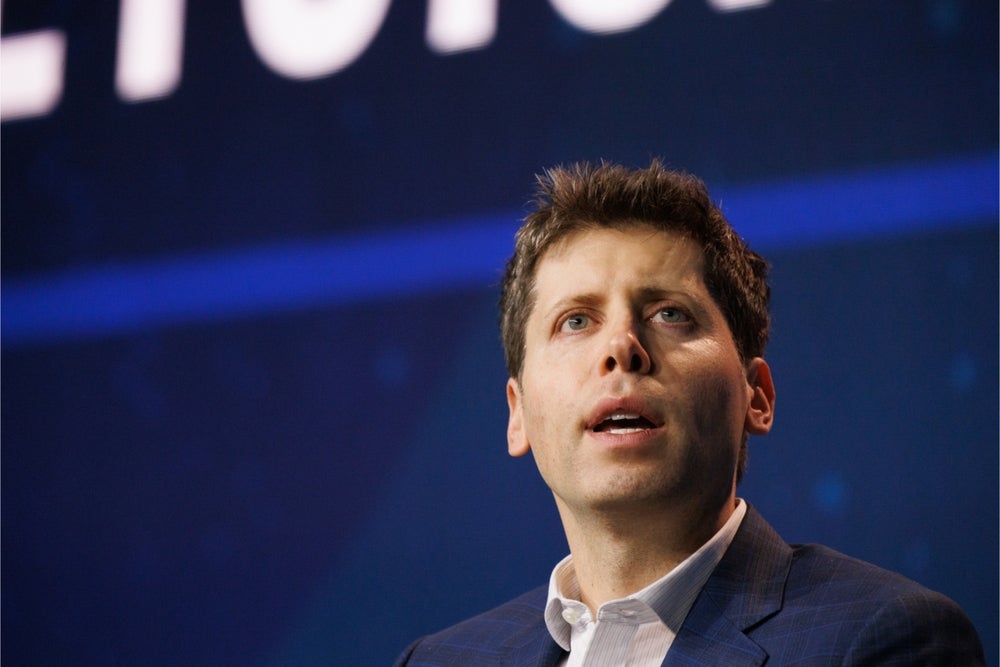Inside the $97 Billion Chess Game: Sam Altman Accuses Elon Musk of Sabotage
In a recent revelation that has sent shockwaves through the tech industry, Sam Altman, the CEO of OpenAI, has made bold accusations against one of the most influential figures in technology, Elon Musk. Altman asserts that Musk’s staggering $97.4 billion bid for OpenAI is less about genuine interest in the advancement of artificial intelligence and more about stifling competition. This accusation not only raises eyebrows but also opens a Pandora’s box of questions regarding the motivations and implications of such a monumental offer. In this article, we delve deep into this unfolding drama, exploring the stakes involved in this high-stakes chess game.
The Context of the Bid
Elon Musk’s bid for OpenAI comes at a time when the AI landscape is experiencing exponential growth. With the surge in interest and investment in artificial intelligence technologies, Musk’s proposal has emerged as a significant player in the ongoing conversation about the future of AI. OpenAI, known for its groundbreaking work in AI research and deployment, has been at the forefront of this revolution, capturing both public and private sector attention.
However, Altman’s claim suggests that Musk’s intentions are not purely altruistic. The accusation of sabotage implies that Musk may see OpenAI not as a partner in progress but as a competitor he wishes to control or eliminate. This perspective is particularly compelling given Musk’s history with AI and his previous warnings about its potential dangers.
The Implications of Musk’s Offer
To understand the gravity of Altman’s accusation, one must consider the implications of Musk’s potential acquisition of OpenAI. If Musk were to successfully buy OpenAI, several outcomes could unfold:
- Stifled Innovation: With Musk at the helm, there’s a concern that innovation might slow down. Musk has previously expressed skepticism about AI and its risks, leading some to speculate that he could prioritize caution over rapid advancement.
- Market Control: A successful acquisition could give Musk unprecedented control over the AI market, potentially leading to monopolistic practices that stifle competition and limit consumer choices.
- Ethical Concerns: The ethical implications of Musk’s ownership could be significant. Given his controversial views on AI, his leadership could steer OpenAI’s research and applications in a direction that raises moral concerns.
The History of Tension
The relationship between Sam Altman and Elon Musk has been complicated since Musk co-founded OpenAI in 2015. While both men initially shared a vision for safe and beneficial AI, their paths diverged significantly over the years. Musk’s departure from OpenAI’s board in 2018 was fueled by concerns over the direction the organization was heading, particularly regarding profit motives and competition with other AI ventures.
Since then, Musk has become increasingly vocal about his apprehensions regarding AI, warning that it could pose existential risks to humanity. In contrast, Altman has championed an approach that embraces collaboration, transparency, and ethical considerations in AI development. This philosophical divide sets the stage for the current accusations, as Altman believes Musk’s bid is rooted in self-interest rather than a shared mission for the greater good.
The Competitive Landscape
The tech industry is no stranger to fierce competition, especially in the realm of AI. With giants like Google, Microsoft, and smaller startups all vying for dominance, the stakes are incredibly high. Musk’s bid for OpenAI can be seen as a strategic move in this competitive chess game, where controlling key players can determine the outcome of the broader industry landscape.
Moreover, the growing public interest in AI’s potential—ranging from automating mundane tasks to revolutionizing industries—has attracted considerable investment. Companies are racing to secure their positions, and Musk’s massive offer could be interpreted as an attempt to not only eliminate a competitor but also to consolidate power in a rapidly changing market.
Public Reaction and Media Buzz
The media coverage surrounding Altman’s accusations has sparked significant public debate. Many industry experts have weighed in, providing insights into the potential ramifications of Musk’s bid and Altman’s claims. The public response has been mixed, with some supporting Altman’s view of Musk as a potential saboteur, while others argue that Musk’s intentions may be misunderstood.
Social media platforms have become a battleground for opinions, with hashtags like #AltmanVsMusk trending as users weigh the ethical implications and potential consequences of such a significant business maneuver. Analysts have pointed out that this situation underscores the need for transparency and ethical considerations in the tech industry, especially as it pertains to AI development.
The Future of OpenAI
As the dust settles on this unfolding drama, the future of OpenAI hangs in the balance. Altman’s leadership has been instrumental in positioning OpenAI as a leader in ethical AI research. However, should Musk’s bid proceed, significant changes could alter the organization’s trajectory.
OpenAI’s mission to ensure that artificial general intelligence (AGI) benefits all of humanity might face challenges under Musk’s stewardship. The shift in leadership could lead to a redefinition of priorities, potentially sidelining the collaborative ethos that Altman has championed.
Conclusion: A Call for Ethical Governance in AI
In conclusion, the accusations made by Sam Altman against Elon Musk regarding the $97.4 billion bid for OpenAI shine a light on the complexities and ethical dilemmas inherent in the tech industry. As we witness this high-stakes chess game unfold, it is crucial for stakeholders, regulators, and the public to engage in discussions about the future of AI.
Ultimately, the narrative surrounding Musk and Altman serves as a reminder of the importance of ethical governance in technology. As AI continues to evolve, ensuring that its development aligns with societal values and benefits humanity as a whole must remain a top priority. The chess game may be intense, but the ultimate goal should be a collaborative effort towards a responsible and innovative future in artificial intelligence.
See more Future Tech Daily

